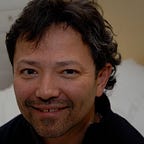The Good Life and a Fulfilling Life 1
Placing Minimal Limits on Fulfillment
Liberal Theory
Liberal theory, as per Rawls, is a theory of politics that places a minimum standard on how our social and political institutions should be ordered, given the pluralistic nature of society.
Rawls’ vision is one that attempts to maximize a collective freedom that allows for each citizen to pursue her or her own vision of the good life, his or her own comprehensive ethic, in a manner such that he or she does not interfere or suppress anyone else’s vision of the good life.
Liberal theory prescribes a society in which we minimize the disadvantages associated with chance and maximize our ability to make our own choices. A liberal society is one of tolerance, acceptance, diversity, multiple conceptions of the good, and a thin theory of public justice based on our mutual interdependence.
Good vs Fulfilling
The good life in philosophy has historically referred to a thick and comprehensive ethic and/or morality. It traditionally has included an explication of how we should personally and interpersonally conduct ourselves.
What I have referred to as a fulfilling life in my writings is more than that: it is a comprehensive vision that goes beyond traditional ethical considerations.
A fulfilling life is one that embraces all of our aspirations, all of our personal and interpersonal values, our feelings and thoughts and our sense of well-being.
Deleuze and Fulfillment
Ethics for Deleuze is closer to a vision of a fulfilling life.
Deleuze’s affirmation of becoming, pure difference, is a call to all of us to go to the limit of what we can be. It is an ethic that affirms life in all its forms and manifestations.
It is experimentation in life aimed at creating the new in an environment that remains open, in the spirit of critical freedom.
Fulfillment in Society
Deleuze’s political thought is a continuation of his philosophy of difference that takes into closer consideration the social formations that develop over time and result in historical necessities that are real and not always naturally consistent with a society based on the affirmation of life as becoming.
Deleuze’s thought regarding territorialization and striations in society, power formations in society that coagulate and repress, reminds us that we participate in a vision of the eternal return of difference.
Striations of power in society never survive in the long run, can never defeat the force of difference that eternally brings back change.
But it is we that participate in that force of change in society.
Affirm Life
What I have tried to argue in relation to liberalism, is that Deleuze’s ethic of an overflowing desire to create and produce, combined with the necessities we face in society, practically speaking, place a limit on the means we choose to live a fulfilling life.
Deleuze nowhere suggests that his vision of difference is one that turns on life itself.
It is a normative vision that affirms life, and as such, reciprocally, is consistent with a political theory that upholds our ability to embrace difference, provided we do so in a manner that is not destructive of life; not destructive of our collective freedom to pursue a good and fulfilling life.
I hope you enjoyed this article. Thanks for reading!
Tomas
Please join my email list here or email me at tomas@tomasbyrne.com.
Excerpt from my forthcoming book, Becoming: A Life of Pure Difference (Gilles Deleuze and the Philosophy of the New) Copyright © 2021 by Tomas Byrne. Learn more here.
